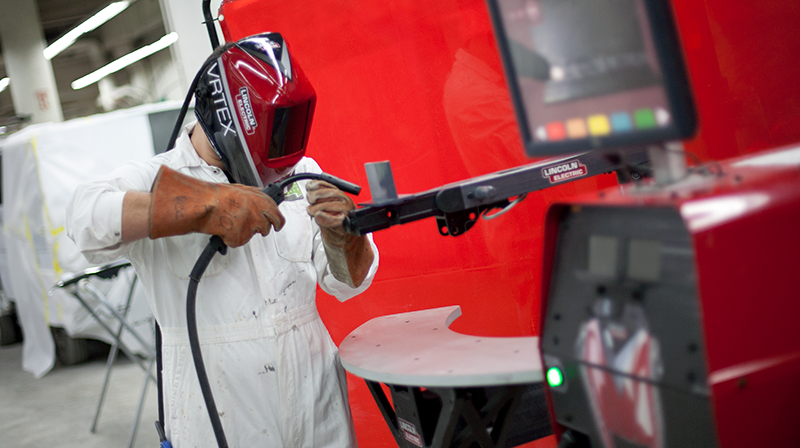Scheduled power outage at Broadway campus, Dec. 13 - 14

VCC automotive student using virtual reality (VR) automotive welding technology on campus
Originally published in The Province
Teaching the trades has always been about learning by doing. Whether it’s welding, mechanics, electrical, carpentry, or even hair cutting, much of the instruction is hands-on and this makes COVID-19 a unique challenge for educators in the trades.
Vancouver Community College (VCC) was forced to quickly come up with options for its trade programs when the campus shut down in March, said Brett Griffiths, the dean of trades, technology, and design.
They shipped off mannequins to hairstyling students isolating at home, and estheticians-in-training practised on family members and filmed the process. Mechanics programs turned to Zoom, and with Go Pro cameras, students and instructors did deep dives into engines.
Now the welding and automotive painting programs at VCC are enhancing their at-home learning options with virtual reality, and the technology is so promising they will likely continue to use it when COVID-19 restrictions ease.
“We are rolling out a new virtual reality program for welding and automotive painting, and it’s the first of its kind in Canada,” said Griffiths.
Virtual reality has advantages for welding: there are no sparks or fumes and no danger for learners, and studies show that training with welding simulators increases proficiency, said Griffiths.
The college already had a virtual reality booth onsite for welding but the technology wasn’t transportable. Now it is.
VCC worked with a software engineering company in India to design the VR welding and painting practice program, and bought the computers and virtual reality headsets that will allow students to practice at home.
“Through gameification students can use the VR and the hand controller to practice distance speed and angle. It helps to train them up before they get into the shop and can help bring that experiential piece,” said Griffiths.
Of course, eventually students will have to spray a real panel on a car, and glove up and weld a real door. Griffiths said the college will soon be hosting smaller cohorts for on-site portions of their programs, and is adapting their shops to meet WorkSafeBC guidelines so everyone feels comfortable and stays safe.
At VCC, one unexpected side effect of the pandemic has been an uptick in applications from domestic students, said Griffiths. “We seem to have seen an increase in domestic student enrolment, and it may have more to do with the current labour market… it’s a good time to get a trade.”
Learn how you can get thorough, in-demand automotive and heavy equipment training with VCC Transportation Trades.